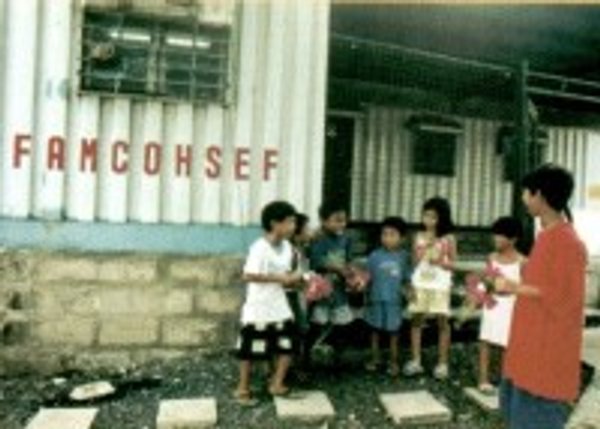BY THE NTH PATIENT, I didn't bother anymore to explain that I was not a doctor. I took the “reseta” from a mother carrying her 2-month-old baby with one arm and the other holding the hand of a toddler with a runny nose. After much deliberation with the other members of the pharmacy team, Grace and Jaymee, we decided that the handwriting on the prescription paper said “multivitamins,” although the writing very much read like “chicken loopyhead.” So there I was, an English major under a caimito tree, standing for hours on end and combing through the remaining boxes of cotrimoxazole, ambroxol and loratidines.
It was a sunny afternoon and there were still about 50 patients left after a morning of over a hundred of provincial folk waiting their turn for a free medical checkup or for a free tooth extraction.
Through the suggestion of the Joint Task Force Malampaya, we held the medical-dental missions with tutorial and catechism classes in Barangays Bucana and Baratuan in El Nido, Palawan. There are approximately 1,000 families in each barangay, making them the two largest in El Nido. But because of the inaccessibility of these barangays, they can’t get any health assistance.
“The poor, the sick and the children are God’s favorites,” said St. Josemaría, the founder of Opus Dei. “So, we should do what we can to help them live a dignified life.” During his younger years as a priest, St. Josemaría regularly visited hospitals and shanties to give anointing of the sick, catechism or just plain solace to those who needed it. He believed that Opus Dei was born through their prayers and sacrifice.
Moved by this teaching, Bishop Alvaro del Portillo (1914-1994), St. Josemaría’s first successor as Prelate of Opus Dei, upon seeing the slums of Manila during his visit in 1987, encouraged the members of Opus Dei to do something for the poor in the Philippines. So, some female doctors and dentists, together with their friends, put up the Family Cooperation Health Services Foundation, Inc., focusing on primary health training.
This nonprofit organization began in Barrio Tulo in Calamba, training 18 community health workers. The five-year primary health-care project included a Tuberculosis Control Program and Nutrition Information and Education, helping at least 600 people out of a total population of 2,232.
Family Cooperation has four primary health-care programs in two barangays in Las Piñas and a couple more in Muntinlupa. The program includes four-hour, once-a-week classes for barangay health workers and mothers. The foundation also holds monthly medical-dental missions in Rizal, Calamba, Batangas, Tatalon and Quezon City. It plans to have programs soon in Bataan, Bulacan and Quezon.
All this generosity comes from a container van of an office along Maria Clara Street in Rizal Village in Muntinlupa City. The programs are undertaken with the help, for example, of the Pilipinas Shell Foundation, Inc., engineer Erning Javion Fernandez and other donors. Donors are needed since, in my case, I could only cover my travel expenses to Palawan and back. If I had to pay for my living expenses, then I might have had to swim my way to Palawan and back.
So there I was trying to find multivitamins under the caimito tree. But in vain. So I turned to the mother with the baby and the toddler with a runny nose and told her, “Bili na lang po kayo sa botika. Ubos na po kasi eh.” (Please buy these vitamins from the drugstore).
Then she walked away with a dejected face that I wanted to go back to Manila and buy a whole drugstore. Then go back to Palawan with all the goods.
By way of swimming, of course.
